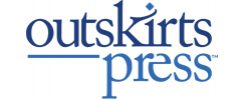I mentioned in a previous post that our most vocal critics are other publishers and, therefore, hardly credible sources. In fact, 99% of our authors love us, and we post many of their comments on our website here.
Perhaps you have even stumbled across an “outskirts press complaints” topic or thread yourself, even if you weren’t trying to, given Google’s own tendency to highlight negative results with their so-called “Google Suggest” functionality combined with humankind’s morbid curiosity for controversy. I have discussed Google’s controversial functionality at some length in previous posts. According to Google, everyone on the Internet complains about everything.
So, congratulations! If you’ve stumbled upon this postings, you’re more than likely a victim of Google’s own manipulation — you didn’t even know you were looking for complaints until Google suggested it. But, if you take the time to read further into nearly any of the “Google Suggestion” results Google presents for any company (whether it be for bottled water or shoes), you soon discover that you haven’t really discovered much controversy at all.
In our case, the top “Outskirts Press complaints” postings involves our Better Business Bureau information, which is not surprising since the BBB is all about consumer complaints. I’ll state frankly that I’m not a big fan of the BBB. Let me give you one reason why: One of our foreign authors registered 5 different complaints to the BBB because we take U.S. income tax out of his royalties (it’s a legal requirement). Same author, same issue, five different “Outskirts Press complaints” according to the statistics reported by the BBB. Another author registered multiple complaints because she was upset that her book, which featured 100 pages of 50-pound paper (the type of paper she requested), was “thinner” than my Self-Publishing book, which features 108 pages of 55-pound cream paper.
I believe in the case of the former, the author somehow believed the BBB would force us to break U.S. tax laws if he kept complaining to them. And in the case of the latter, I suppose she thought the BBB might be able to make her 512 PPI (pages-per-inch) paper as thick as my 441 PPI paper. Of course, the BBB isn’t able to force companies to break laws, and isn’t able to magically make paper “thicker.” So even with the involvement of the BBB, the customers were left unsatisfied and we were left unsatisfied, not only because we had 8 registered complaints instead of 2, but because we would have liked to have satisfied both of those authors if we could have.
It’s interesting, actually. Of the first page postings, a third of the “Outskirts Press complaints” results are from individuals who have started their own small presses. They discuss Outskirts Press in order to attract customers to their own business or products. It’s easy to understand why: More people search for “Outskirts Press” than for their company. It’s the same reason The National Enquirer writes more about Tom Cruise than Tom Arnold. People care about Tom Cruise; Tom Arnold — not as much.
And if you check the dates of the posts, they hold even less weight. One comes from 2008 (over 2 years ago) and another comes from April Fool’s Day.
“April Fool’s Day” has earned its namesake in the Internet age, with desperate individuals using the date as justification for posting false, fraudulent, and libelous claims. A competitor of Outskirts Press, for example, once distributed a press release on April Fool’s Day claiming that the Library of Congress needed to add another wing to accommodate the vast quantity of books being published by said competitor. Another company in our industry (this one not so much a competitor of Outskirts Press) claimed to have reached a deal with J.K. Rowling for the ebook rights to Harry Potter. Were both these press releases clever? Of course they were. But they muddy the waters in an already confusing industry and ultimately add to the confusion of the end customer/consumer/client (or author in this case), who may not realize that such a press release is a “joke.” Separating fact from fiction is hard enough on the Internet; companies don’t have to make it even harder one day out of the year.
And all this goes back to support my previous posting, which is… do your homework when conducting research online.
